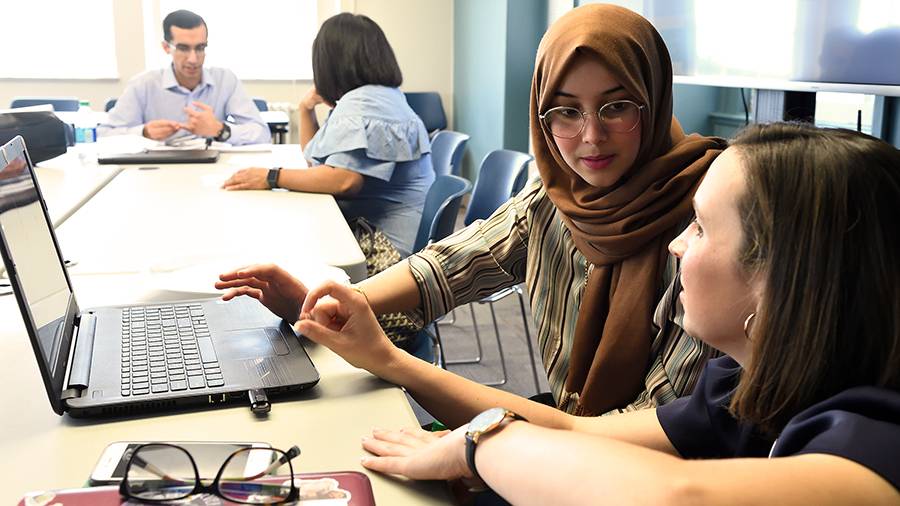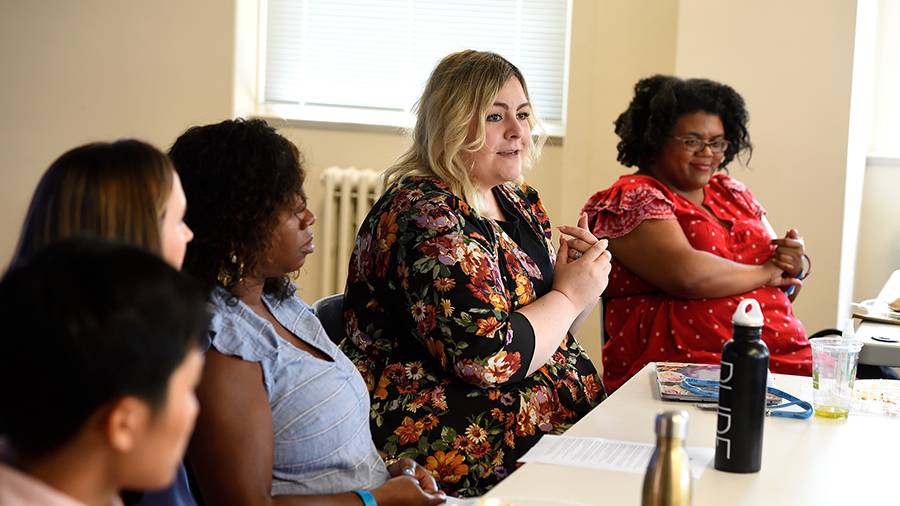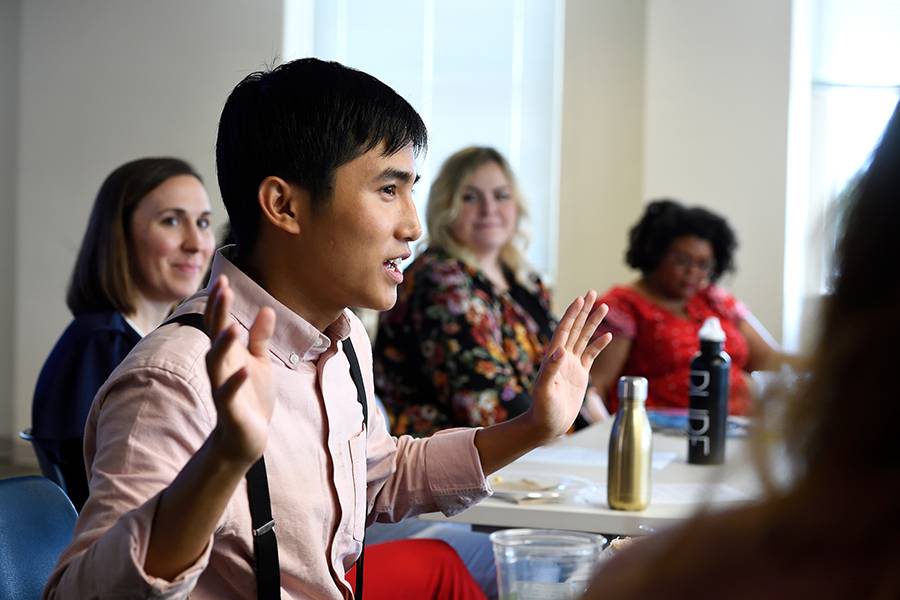The summer at Johns Hopkins passes quickly, but for a lot of students the season can mark a turning point.
"It's really made me question what I want to do with my life," said Jessica McKinney, who is one of 13 scholars taking part in this year's Summer Humanities Collaboratory.
Like several other participants in the program, McKinney is currently earning her associates degree at the Community College of Baltimore County. But the summer lab experience at Hopkins, with its immersive dive into humanities research, is providing a glimpse of life beyond the two-year degree.
"Now I definitely could see myself going to grad school," McKinney said.
Within its collaborative framework, the summer lab integrates not only local community college students from in and around Baltimore, but also those from historically black universities across the U.S.—all funded by grants from the Andrew W. Mellon Foundation.
During the 10-week program, participants live and study together on the Johns Hopkins Homewood campus, sharpening their skills in research and critical thinking as they develop individual projects based around their own passions. In the end, they present their work at two public symposia, including a national event this week.

Image caption: The program builds off the success of programs such as the Vivien Thomas Scholars Initiative and the Humanities Collaboratory, pictured here
Image credit: Will Kirk / Johns Hopkins University
But for as much as students are focused on their own topics—this summer's batch runs the gamut from Arabic poetry and machine translation to the movie Moonlight—the principle of peer collaboration is central. Every step a student takes is a transparent one, shared with their fellow scholars for advice and feedback.
It's a novel approach for humanities research, modeled after the "lab"-type environment that's normally reserved for the sciences.
"There's nothing out there I've found that's like this, with this emphasis on sharing the work and showing the process," said program director Natalie Strobach. "It destabilizes the classic structure we see where the professor has all the knowledge."
Though instructors—Strobach and two Mellon fellows from Hopkins—guide students through readings and research strategies, the curriculum is not lecture-driven. Students are typically posed around a table, facing each other or working on shared computers as they work out challenges.

Image caption: "[The Summer Humanities Collaboratory] destabilizes the classic structure we see where the professor has all the knowledge," says program director Natalie Strobach.
Image credit: Will Kirk / Johns Hopkins University
Another notable feature is the absence of a central text. In its pilot summer last year, the program was structured initially around Shakespeare's Hamlet—before Strobach recognized that students were becoming more invested as they branched off into their own interests.
"It turns the table in a way that builds their confidence more," said Strobach, who is also director of undergraduate research at JHU's Krieger School of Arts and Sciences.
That confidence boost is meant to pay dividends beyond summer, too, as participants ideally pursue four-year degrees or graduate studies. In fact, Strobach will be following their progress for up to 10 years, tracking where her students end up in the long run.
"We're hoping to get rid of this idea of 'there are people who are scholars and people who aren't'," she said."The goal is that they would fall in love with their research and want to continue their education."
The humanities lab also streams students into the broader summer undergraduate research programming at Hopkins, through workshops with visiting STEM students that center on GRE prep and other grad school application issues.
Janelle Green, an undergrad from Claflin University, said that such events have helped radically change her mindset toward higher education.
"My interaction with school has always been, "I'll do whatever I can afford,'" Green said. "Understanding that PhD programs can be fully funded was … transformative."
Reese is one of four students this summer funded through the Mellon Foundation's FYRE grants, awarded to freshmen at historically black colleges and universities. The other nine were selected through the Mellon Scholars program, in a partnership between Hopkins and the Community College of Baltimore County campuses.
This week, all 13 scholars traveled to Hartford, Conn., to give 10-minute presentations of their summer's work at the Leadership Alliance Symposium. A second symposium will follow at Hopkins on Aug. 7, in the Glass Pavilion on the Homewood campus.
Posted in Arts+Culture, Student Life








